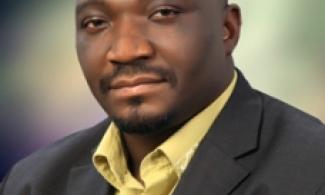
Since the turn of the 4th republic in 1999, over 50,000 Nigerians have been killed in the seemingly endless cycles of ethnic, sectarian and political crises that have ravaged the nation. About 14,000 of these deaths have been due to sectarian and religious conflicts. These gory statistics imply that the fourth republic has surpassed all others in the peacetime killings of Nigerians.
Since the turn of the 4th republic in 1999, over 50,000 Nigerians have been killed in the seemingly endless cycles of ethnic, sectarian and political crises that have ravaged the nation. About 14,000 of these deaths have been due to sectarian and religious conflicts. These gory statistics imply that the fourth republic has surpassed all others in the peacetime killings of Nigerians.
googletag.cmd.push(function() { googletag.display('content1'); });
Most of these deaths have come about as a result of mob action. The anatomy of sectarian mob killings is simple. A group of people motivated by their hatred for those who do not share their faith or zealotry swoop down on innocents and murder them in cold blood.
The paradox of mob action is that while each member of the mob is as responsible as any other for the murders they cooperatively perpetrate, the anonymity offered by the crowd, allows for a phenomenon that social psychologists call de-individuation to occur. The consequence is a feeling of guiltlessness, by the perpetrators of even the most heinous crimes.
If we assume that the rampaging mobs that wreak death and havoc during sectarian crises are made up of 10 to 50 persons, the 14,000 deaths caused by sectarian crises since 1999 have therefore involved about 140,000 to 0.7 million perpetrators. Because the crises have tended to occur in a limited number of cities across Nigeria – Bauchi, Kaduna, Kano, Jos - some of the perpetrators are likely to be repeat offenders.
Each of these crisis prone cities has endured at least five incidents of sectarian conflicts since 1999.
googletag.cmd.push(function() { googletag.display('content2'); });
Assuming that these perpetrators have participated in at least one attack leading to the death of innocents during each of those crises, we arrive at the troubling proposition that there might be anywhere from about 30,000 to 140,000 Nigerians who might have participated in murder and mayhem, who are walking our streets and prancing around as if nothing has happened.
None of these tens of thousands of murderers have paid any price for their crimes. Their misdemeanors have gone unpunished, as if those whose lives they have taken were stray animals, and not fathers, mothers, brothers, sisters, sons and daughters who were violently taken away from amongst us.
Every single review of conflicts that have occurred in Nigeria since 1999, has noted the involvement of prominent citizens in the instigation and the funding of sectarian and ethnic conflicts. Despite the damning evidence, there hasn’t been a single conviction of any of the perpetrators, or of their masterminds and paymasters.
And so, even as the bodies of the dead continue to pile, the sponsors of these heinous crimes have gone unpunished. The clerics whose words fuel the fires of discord, the political opportunists who stoke the embers of hate, and the ethnic irredentists who fuel the inferno of intolerance are left untouched, and unscathed. If anything, they are rewarded for their crimes. The more rabidly hateful their utterances, the more unyielding their demands, the more invested they are in the marketing of hate; the more they are rewarded with positions, influence and contracts.
There are only two ways to change behavior. Any action that is not punished is either tacitly or expressly encouraged. The Nigerian state, by electing to ignore murderers and the purveyors of violence has invariably created an environment that nurtures and provides incentives for sociopathic behavior.
For those who have ever wondered why carnage seems to swoop down upon Nigeria without warning; for those who are amazed at how cities like Kaduna, Jos, Bauchi and Kano can appear to be normal in one minute, and turn into a burning hell in the next instant, they need not wonder any longer. There are murderers amongst us, and with each massacre that is swept under the carpet, with each killing that goes unpunished, with each sponsor and instigator of violence that is allowed to taunt justice, we tighten our embrace of impunity and stand the risk of elevating sociopathic tendencies to the new social normal.
How many more must die, before justice is done?
Sources:
1. http://www.unhcr.org/refworld/docid/4f71a675a.html
2. http://nigeriamasterweb.com/blog/index.php/2011/12/11/nigeria-in-state-of-war
googletag.cmd.push(function() { googletag.display('comments'); });